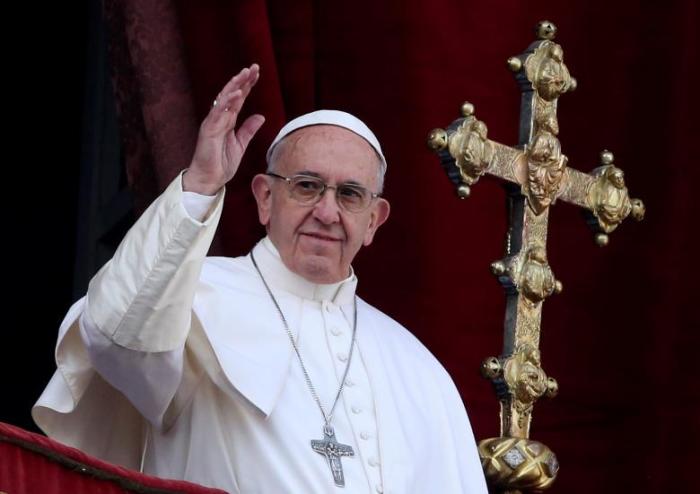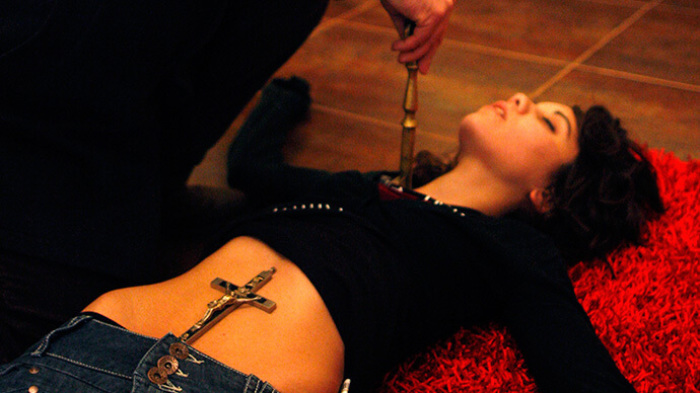Pope Francis Urges Priests to Call an Exorcist if They Suspect a Parishoner Is Demon Possessed

Pope Francis spoke to a large group of priests Friday, telling them they "should not hesitate" to refer penitents to exorcists, if they are suffering from "genuine spiritual disturbances."
A good confessor is "a man of the Spirit, a man of discernment," the pontiff told the priests attending a course on confession organized by the Apostolic Penitentiary, a Vatican court which deals with issues surrounding the sacrament, according to Crux.
"Discernment allows us always to distinguish, rather than confuse, and to never tar all with the same brush. Discernment educates our outlook and our heart, enabling that delicacy of spirit that is so necessary before those who open up the shrine of their own conscience, to receive light, peace and mercy," the pope continued.
Discernment is necessary also because those who approach the confessional may come from the most desperate situations, Francis added. "They could also have spiritual disturbances, whose nature should be submitted to careful discernment, taking into account all the existential, ecclesial, natural and supernatural circumstances."

The pope then said when the confessor becomes aware of the presence of "genuine spiritual disturbances — that may be in large part psychic, and therefore must be confirmed by means of healthy collaboration with the human sciences, he must not hesitate to refer the issue to those who, in the diocese, are charged with this delicate and necessary ministry, namely, exorcists." The pope cautioned, "but these must be chosen with great care and great prudence."
A lack of discernment harms the Church and souls, the pontiff continued. "The confessor does not act according to his own will and does not teach his own doctrine. He is called always to do the will of God alone, in full communion with the Church, of whom he is the minister, that is, a servant."
An 84-page update of exorcism rites compiled in 1614 and drawn up in 1998 stipulates how Catholic priests trained as exorcists should operate. According to the guidelines established by the Church, they have to follow a ritual known as "De exorcismis et supplicationibus quibusdam," or "Of exorcisms and certain supplications."
Father Gabriele Amorth, the Catholic Church's top exorcist who claimed to have sent 160,000 demons back to Hell, died last September in Rome at the age of 91.
Pauline Father Amorth, who was appointed the exorcist for the diocese of Rome in 1985, headed the International Association of Exorcists. He said in 2013 he would ask Pope Francis to allow all priests the right to do exorcisms without the Church's approval. He explained that he was inspired to make the request after watching the pope perform what he insisted was an exorcism on a man "possessed by four demons" in St. Peter's Square.
Amorth insisted that both Hitler and Stalin were possessed by the devil.
A leading Roman Catholic exorcist said last year that what most Hollywood depictions of demon possession get wrong is that Satan is not a "god of evil," but is a servant of God.
"Satan is not the god of evil against the God of the good, rather he is a being who God created as good and who, with some angels — also created good by God — became evil because they refused God and His Kingdom with their free and final choice," Father Francesco Bamonte, president of the International Association of Exorcists, wrote in Vatican Newspaper L'Osservatore Romano.
"Satan and the spirits at his service, therefore, are not omnipotent beings, they cannot perform miracles, they are not omnipresent, they cannot know our thoughts or know the future," he added.




























